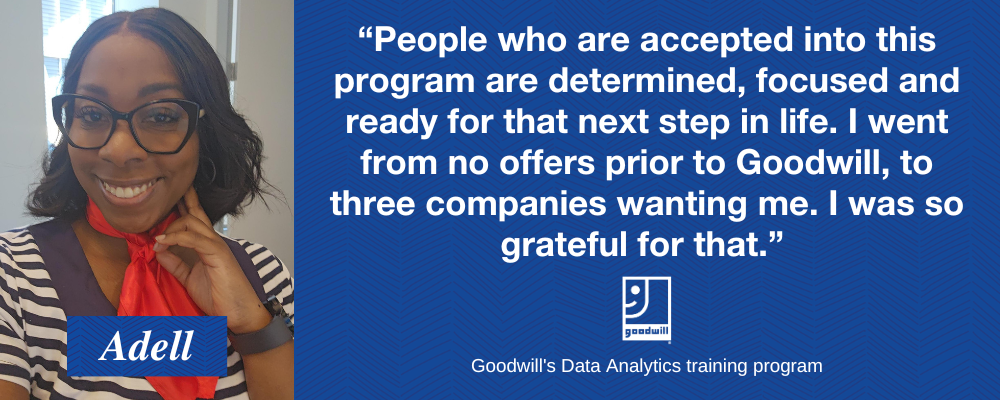 Enrolled college students who also maintain part- or full-time employment are a common part of today’s academic climate. According to a recent report from the U.S. Census Bureau, more than 70% of U.S. students held down jobs during their four years of undergraduate study, and roughly one in five logged 35 hours or more per week throughout the school year. Similar trends exist within the online learning community. A 2006-09 survey of nearly 70,000 online students from 87 different institutions found that most were employed full-time while they earned their degree; additionally, half were married and 35% had children.
Enrolled college students who also maintain part- or full-time employment are a common part of today’s academic climate. According to a recent report from the U.S. Census Bureau, more than 70% of U.S. students held down jobs during their four years of undergraduate study, and roughly one in five logged 35 hours or more per week throughout the school year. Similar trends exist within the online learning community. A 2006-09 survey of nearly 70,000 online students from 87 different institutions found that most were employed full-time while they earned their degree; additionally, half were married and 35% had children.
Clearly, a routine that effectively balances school, work, and family life is crucial for the success of online higher education. However, it’s also important for web learners to gain experience in the professional field they are studying while their program is in progress ― and for many, their current occupation does not match their long-term professional goals.
This article will provide some tips and ideas for online students who wish to gain valuable skills and experience that is vital to their prospective career without sacrificing that much-needed paycheck.
The Life of a Working Student
Before pursuing professional opportunities related to their degree path, online students should ensure they are able to make such a commitment. For this reason, University of Pennsylvania Professor Laura Perna recommends that students curtail their weekly work schedules. “While working more than 15 hours per week may be financially necessary,” she told U.S. News & World Report, “I suggest that students first be sure that they have taken full advantage of all available sources of financial aid, especially financial aid in the form of grants.”
However, it’s important to note that some employment options are more beneficial to students than others. Robin Dizes, manager of career development services at Peirce College, tells Fox Business that certain opportunities ― such as paid internships and temporary positions in the student’s chosen field ― often lead to promising career leads after graduation. “If you choose employment that meets your needs, you will be more likely to continue to work there long-term, and long-term employment is attractive to employers, builds your resume and allows you to have stability in your career,” she said.
The reality, however, is that many students are required to take on jobs unrelated to their field just to finance their tuition payments, pay rent and bills, and provide for extracurricular activities. Rather than jeopardizing their primary means of support, academic experts urge online students to seek out opportunities that will assist their career plans without consuming large amounts of time or energy.
Internships
lnternships are highly coveted among college students for several reasons. First, they enable students to experience firsthand the working environment they plan to enter once they have obtained a degree. Additionally, these positions allow students to network with professionals in their field, learn practical skills not taught in the classroom, and collaborate with other interns to hone their teamwork skills. And in many cases, internships lead to entry-level positions for students once they graduate.
However, there are also some drawbacks to internships. Time commitment is a major factor; most internships require 20 hours or more per week ― and since the majority of these opportunities do not award any monetary compensation, students must forego paid work to satisfy their demands as an intern. However, even paid interns often encounter another problem: the work they perform is vastly different from hired employees. Interns often assist with housekeeping, office logistics, and other menial tasks that may have little (if anything) to do with their prospective career. Finally, the quality of the internship is important; some companies seek interns with the genuine desire to train them and expose them to working conditions in their future field, while others simply view them as free laborers.
Online students can learn about different internship opportunities by reaching out to their professors and corresponding with officials at their institution’s web-based career center; information is also available through nationally based websites like InternMatch and Indeed.com. However, Forbes contributor Frances Bridges says the key to landing a desirable internship is through thorough research of the industry as a whole. Students should look into hiring practices and business philosophies of all the major companies and organizations in their field, as well as stock market performance, popular products, and other constantly changing variables. Students who can intelligently discuss the current state of their prospective profession fare best during intern interviews.
Freelancing
Depending on a student’s chosen major, there may be opportunities to earn experience ― as well as a little supplemental income ― by pursuing gigs as a freelancer. Fields where freelancing is common include writing and journalism, web development and marketing, computer programming, business consulting, and graphic design, as well as burgeoning industries like medical billing and coding and project management. Freelancing allows students to demonstrate their skills and passion for their field of study outside the classroom. This option is particularly attractive to students with part- or full-time jobs, since they often get to decide how many (or few) freelance assignments to take on at once.
Students are encouraged to check out established sites that cater to freelancers, such as ELance, oDesk, and Guru.com. Molly Merez, executive director of Ticket Summit, also recommends reaching out to local businesses and organizations. “Oftentimes companies don’t have the budget for a full time employee but do have the money to pay on a project by project basis,” she tells Fox Business.
One word of caution about freelancing opportunities: like internships, they are not all created equal. Stephen Fishman, J.D., notes in Nolo Law for All that regulations governing fair treatment and compensation of employees may not extend to freelancers. “Some [independent contractors] have great difficulty getting their clients to pay on time or at all,” Fishman notes. “When you’re an IC, you bear the risk of loss from deadbeat clients.” This may not be a major issue for students who obtain these jobs solely for the professional experience, but it certainly affects those who freelance to support themselves.
Tutoring
Many online students opt to tutor children and adults in their local community, as well as their collegiate peers; some specialize in group classes, while others tutor clients one-on-one. Like freelancers, tutors pursue independent gigs (based on the demands of their individual schedule) that allow them to gain experience in their field and earn a little money on the side. Most tutors focus on core subjects like mathematics and literacy, while others teach skills like personal finance, computer programming, or foreign languages. Regardless of the subject, the key components to being a successful tutor are identifying the educational demands within one’s local community, creating a viable lesson plan, and delivering satisfactory services that generate positive word-of-mouth.
Most college career centers provide resources for students who wish to tutor; additionally, web users can register with online tutor referral agencies like TutorGeek and Tutor Match to locate potential clients. Community outreach is also crucial; tutors should create a website with information about their services, post fliers on job boards advertising their services, and print business cards. Home-based tutoring is somewhat frowned upon. For this reason, students are urged to contact their local library or community center to inquire about reserving conference rooms on a regular basis. Digital tutoring is also a popular alternative to face-to-face sessions.
Volunteering
In lieu of paid opportunities, many students obtain skills and experience through unpaid volunteer work. Accounting students assist community members at their local library during tax season; aspiring nurses donate their time to blood banks and other medical establishments; and student teachers spend their time assisting educators in the classroom. Volunteering is especially useful for students in any major who don’t have any professional experience and are hoping to bolster their resume ― particularly opportunities that allow the student to travel abroad.
Huffington Post contributors Steven Weddle and Billy Beltz urge prospective overseas volunteers to thoroughly research all potential opportunities before signing up. “You’re about to make a very serious commitment in terms of time, money and impact on others,” they note. “Questions to ask include: Is your program fee going to good use? Will you actually add meaningful value to your project? Will you be safe?” They recommend visiting reputable sites like Volunteer Forever to learn more about viable international opportunities.
For those who wish to volunteer stateside, the University of New Hampshire encourages college students to contact different organizations within their local communities; websites like www.volunteer.gov provide detailed, area-specific information about different opportunities. And while all volunteer work is inherently rewarding on a karmic level, students should prioritize opportunities that help them build the skills they need to succeed and gain insight into the industry they’ll enter upon graduation.
Other Ways to Gain Experience
In addition to internships, freelance work, tutoring services, and volunteer projects, online students can prepare themselves for the workforce by attending seminars, conferences, and other events associated with their future career. These gatherings often provide outlets for attendees to learn new skills, network with professionals in their field, and learn more about the current state of their industry. Massive open online courses (MOOCs) may also be useful; these free web classes typically don’t award credit, but they do impart valuable skills and proficiencies to students who complete the coursework. Coursera, edX, and Udacity are some of today’s leading MOOC providers.
But even with all of these options, students should seek out as much wisdom as they can from their current job, even if that job isn’t related to their degree or career path. Every position carries transferable duties and responsibilities; restaurant workers must excel at customer service, office assistants gain a good grasp on the inner-workings of business operations and corporate culture, and employees in retail learn about sales, marketing, and financial management. And regardless of the position itself, every place of employment offers the chance for students to network with co-workers, clients, and customers.
Juggling academic responsibilities and work obligations can be frustrating, and these demands ostensibly leave little time for other pursuits. However, there are plenty of professionally oriented opportunities available to today’s online students that require minimal time commitment, but still manage to reward them with the skills, experience, and expertise required to excel in their field once they’ve earned their degree. The trick is knowing where ― and how ― to find them.
This article was contributed by staff writers at OnlineColleges.net.







PPR Infotech Pvt Ltd. is an IT company in India providing Web development, Web designing, Search Engine Optimization(SEO) and Business Process Outsourcing(BPO) to customers worldwide including individuals, organizations and companies.